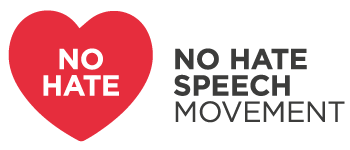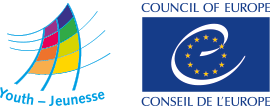Compendium of Resources
The online compendium presents over 270 resources developed within the No Hate Speech Movement youth campaign by National Campaigns, partners and the Council of Europe.
The resources listed are freely available, but please acknowledge the author and/or source when using them.
Using the compendium
The filter in the column to the right of the screen, help you narrow down your search. Use the tags to find quickly the type of resources you need for your target group on the topics of their interest.
Each listed resource includes a short abstract summarising the resource content, publishing date, author(s) and other relevant information. Where authors are unknown the National Campaign is listed or it’s marked as Non-Available (N/A).
Question, suggestion or correction?
The resources were collected through an open call among the National campaigns, online activists and European partners.
The Council of Europe is not responsible if a resource is withdrawn or inactive.
All efforts were made to make this Compendium complete and accurate. Nonetheless if resources are missing or information is inaccurate, please inform the secretariat.
“Govorna o mraza” online platform
Description: In 2013, the Helsinki Committee for Human Rights of “The former Yugoslav Republic of Macedonia” (MHC) introduced an online web platform for mapping cases of hate speech. The platform is a user-friendly, comprehensive database of report cases of hate speech on different grounds. Anyone can report a case of hate speech noted in public space (graffiti, protests and public gatherings, on traditional media or social networks). After the case has been reported, MHC reviews the report and analyses the legal grounds for taking proceedings before national institutions. If the registered case took place online (through web portals, social media, etc.) it will be forwarded to the Ministry of Interior, the sector for computer crime and digital forensics. During the past few years, MHC has submitted two criminal complaints for hate speech by a journalist (a television chat-show host) on the basis of sexual orientation, and hate speech by a politician-mayor, again for hate speech on the basis of sexual orientation at a public event. The platform also offers statistical data introduced in a graphic manner. In this way, in the period between 2014 and 2017, the Helsinki Committee for Human Rights of ‘The former Yugoslav Republic of Macedonia’ registered 315 cases of hate speech. From the information available, the three most common grounds for hate speech are: ethnicity, sexual orientation and gender identity, and political affiliation. At the same time, the data provides references to definitions, analyses, and articles which provide information about hate speech.
Country: ‘the former Yugoslav Republic of Macedonia’
Author(s): Helsinki Committee for Human Rights of the Republic of Macedonia.




